4 Types of Gutters That Will Transform Your Home’s Curb Appeal
Most people overlook gutters’ role in a house’s appearance, especially in the curb area. This post looks at the four types of gutters you can use to make a statement and enhance your home’s curb appeal.
4 Types of Gutters:
1. Half-Round Gutters
These gutters have a curved lip and semicircular design. It’s because of their round design that they also feature circular downspouts.
Half-round gutters are available in 6- and 5-inch widths. A majority of houses built before and up to 1960 have these gutters. So, they work well in brick or historic houses.
Some local regulations may require installing half-round gutters if you live in a historic neighborhood.
Pros of Half-Round Gutters
- They are suited for areas that experience heavy rainfall and are highly durable.
- They possess a traditional, attractive design that will boost your house’s curb appeal.
Cons of Half-Round Gutters
- More susceptible to debris accumulation
- It can be expensive and challenging to install
2. K-Style Gutters
These types of gutters are the most popular as they are easy to install, especially if you like DIY. K-style gutters are similar to half-round gutters, for they come in 6-to-5-inch widths. The difference is that K-style gutters have rectangular downspouts.
Thanks to their flattened backs, you don’t require brackets to nail K-style gutters on your fascia boards. However, it’s more difficult to clean these gutters as their inner angles collect debris easily.
Pros of K-Style Gutters
- An affordable and standard option
- They don’t require brackets to place on fascia boards.
Cons of K-Style Gutters
- They have an angled profile which makes them challenging to clean.
3. Box-Style Gutters
These are oversized gutters specifically designed to deal with heavy rainfall. Box gutters come in 8- or 7-inch widths, though some can go up to 10 inches.
Because of their vast size, experts recommend box-style gutters for large roofs. So, you will find them mostly on industrial or commercial buildings.
Additionally, you can’t hang box gutters on a roof’s edge. Instead, you will require a high back section under your roof’s shingles. Therefore, you can only install these gutters when the house is still under construction.
Pros of Box-Style Gutters
- More durable compared to other designs
- Abel to withstand heavy rainfall
Cons of Box-Style Gutters
- Expensive to install
- Minimal aesthetic appeal
4. Custom Fascia Gutters
These are customized gutters that have a contemporary seamless look. You will need to work with a professional to install fascia gutters. The professional will create a personalized system using a long aluminum piece. The aluminum is tailor-made to meet your roof’s pitch and home measurements.
Also, it’s worth noting that fascia gutters cost almost twice the price of K-style or half-round gutters.
Pros of Custom Fascia Gutters
- Can handle heavy rainfall
- Securely attached to your house’s fascia boards, so they can’t fall off easily.
Cons of Custom Fascia Boards
- Hard to install
- Require frequent cleaning
Gutter Materials
Aluminum Gutters
They are rust-resistant, lightweight, and easy to use if you enjoy DIY. Aluminum gutters have a 20-to-30-year lifespan, though they are more likely to develop cracks.
Copper Gutters
Extremely durable, copper gutters don’t bend, rust, or warp when faced with severe weather conditions. Also, they give your house a unique look. However, copper gutters are costly, and you will need a professional to install them.
Zinc Gutters
These are the easiest-to-maintain gutter options. Zinc gutters have an inbuilt sealing patina that prevents the formation of cracks and scratches.
Due to their study nature, you avoid frequent gutter repairs in their up to 80-year lifespan.
Vinyl Gutters
Vinyl gutters are cheap and straightforward to install, making them a favorite among DIYers. Made from PVC and plastic, vinyl gutters have a short lifespan compared to other systems; they can last 10 to 20 years.
In addition, these gutters deteriorate fast, more so in wet climates. If you live in highly humid areas, it would be preferable to consider metal gutters like copper or steel.
Galvanized Steel Gutters
Compared to aluminum gutters, galvanized steel gutters are sturdier and more durable. However, you will need a professional to install them, as they require soldering. These gutters do well on houses that experience a lot of rainfall and hot seasons.
Galvanized steel gutters can last 20 to 30 years, though they can quickly develop rust if you don’t maintain them correctly.
Let the Professionals at Sixpenny in Northern Virginia Help
Consider the information above to decide which gutter style and material best suits your home’s design and needs. Also, it’s better to involve a professional as it would ensure proper gutter installation.
We at Sixpenny Chimney have well-trained professionals ready to help you choose a gutter style, handle the installation and do regular maintenance. Contact us for a quote today.

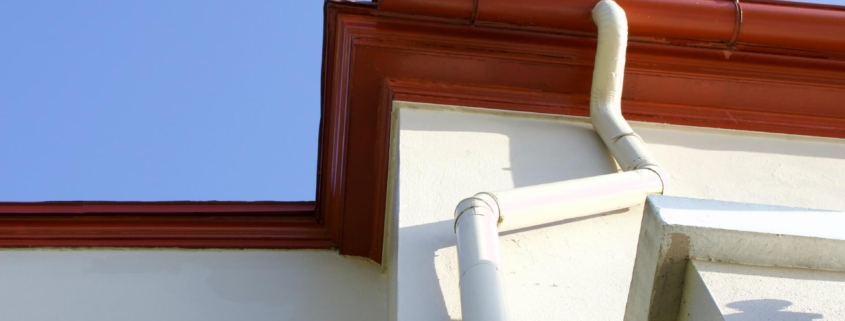
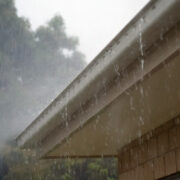

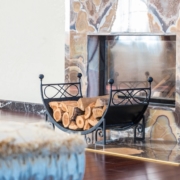

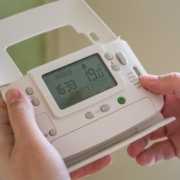
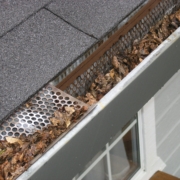
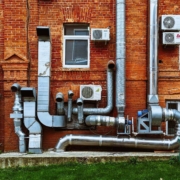
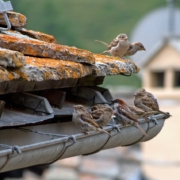


Leave a Reply
Want to join the discussion?Feel free to contribute!